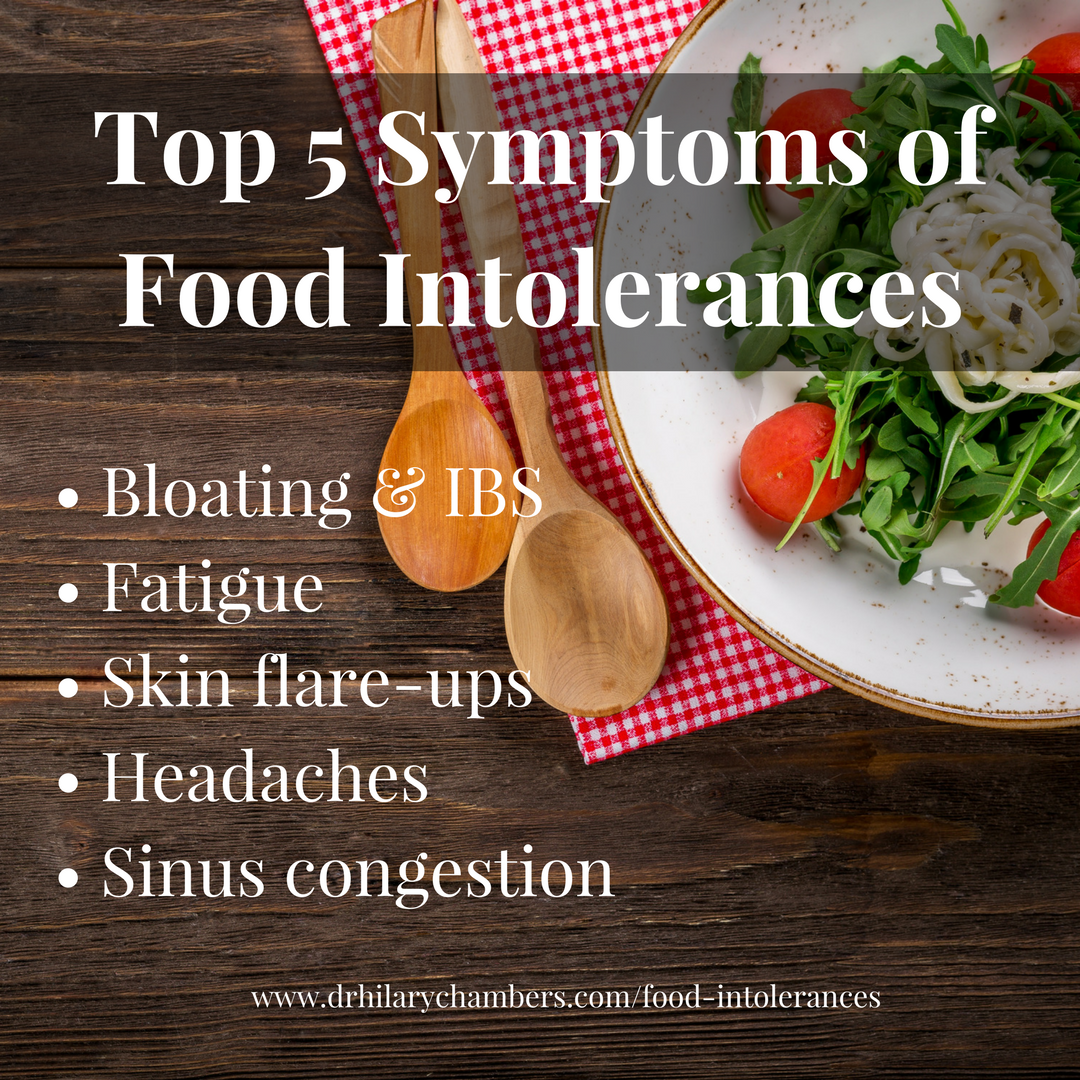Food Intolerances
Food Intolerances
Written by Dr. Hilary Chambers, ND
Many of us are familiar with that post-meal feeling of “that food didn’t agree with me” but most food intolerance symptoms are much less obvious and can be difficult to pinpoint without the proper tools. Food intolerances can cause a vast range of symptoms, from skin issues, to digestive upset, to joint pain, headaches, and anxiety. In order to understand how food can affect all these things, we have to examine the gut.
What is a food intolerance?
The gut should act as a protective barrier between food and our bodies. Generally, the spaces between the cells of the gut lining are closed, and the gut selectively chooses what it absorbs from the gut into the bloodstream. However, with inflammation, stress, yeast overgrowth, medications like the birth control pill and antibiotics, and eating inflammatory foods, a molecule called zonulin is released.
Zonulin causes gaps and leakages in the gut lining, allowing “uninvited” food proteins and bacteria into the bloodstream. When your body sees these uninvited guests, it mounts an IgG delayed-type immune response.
This IgG delayed-type immune response forms a complex with the uninvited food particles, and this complex causes a cascade of immune hyper-reactivity and inflammation. This is why we can see skin issues in one person and joint pain in another; it depends on where the immune response and inflammation occur.
I want to be clear – this is a different type of immune response from an anaphylactic reaction (like a peanut allergy), or from a celiac disease reaction. We are speaking strictly of food intolerances, not food allergies.
Hints that you might have a food intolerance
If you experience any of the following symptoms, food intolerances and leaky gut might be at the root of the problem:
• Skin conditions: acne, eczema, psoriasis, hives, rashes
• Digestive conditions: bloating, loose stools, constipation, digestive upset
• Autoimmune conditions: Crohn’s, colitis, RA, hypothyroidism
• Pain: headache, migraine, joint pain, arthritis, joint swelling
• Neurologic: anxiety, depression, OCD, autism, ADHD
• Other: inability to lose weight, infertility, fatigue
How do I know which foods are the problem?
The first method is called the Elimination Diet. In this diet, you remove all inflammatory and generally reactive foods from your diet for a specified period of time. This should be done with the assistance of a Naturopathic Doctor to ensure you’re doing it safely, effectively, and for the correct period of time. During the elimination phase your ND would also work to heal your gut lining. You would then re-introduce those foods one at a time to see which foods still cause a problem, and you would keep problematic out of your diet for the longer term because your body is likely still producing IgG immune reactions to those foods.
The second method is to do a food intolerance test. A Naturopathic Doctor can do this test using a finger prick to draw a few drops of blood. The test results provide you with a range from “no reaction” to “very high reaction” for 96 different foods. This tests directly for those IgG immune responders for each food. You would then remove the reactive foods from your diet for a period of time, heal the gut lining, and then reintroduce the foods one by one back into the diet. The benefit of the blood test is that it removes the guess-work and is less restrictive than the Elimination Diet, but the draw back is that it is more costly.
The Bottom Line
Food intolerances are commonly overlooked but they can cause a variety of problems in the body. Investigating your diet is a great way to build a strong foundation for a healthy body by reducing inflammation and keeping the immune system on track.
Book an appointment with Dr. Chambers to determine if food intolerances are affecting your overall health, and develop a customized plan to heal your gut lining.




No Comments